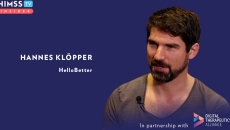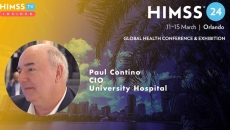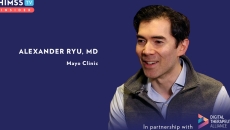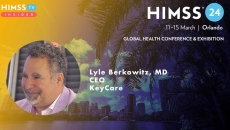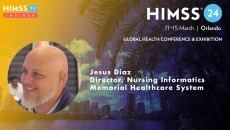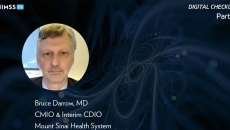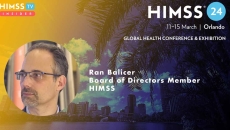Videos
HelloBetter offers a range of DTx medications for the treatment and prevention of such conditions as burnout, panic and insomnia, says Hannes Klöpper, HelloBetter cofounder and CEO.
HIMSS24
Paul Contino, University Hospital CIO, says HIMSS has helped him in his career, and now he's giving back as a chapter leader for HIMSS in New Jersey by serving on the HIMSS Global Health Education Committee and as chair of that committee.
Mayo Clinic is using AI to make better predictions about disease and treatment and to improve administrative processes, says Dr. Alexander Ryu, vice chair of AI and innovation at Mayo Clinic.
HIMSS24
Artificial intelligence can define a population at risk and also help achieve better health outcomes, such as for medication adherence, says Pravin Pant, VP of advanced analytics, and Michael Gould, associate VP of interoperability strategy, both at ZeOmega.
When a larger company buys a smaller company in the same industry, this "tuck-in acquisition" is relatively safe, says Aytan Dahukey, partner and leader of Sheppard Mullin's private equity team as well as a member of the firm's healthcare and emerging growth/venture capital teams.
HIMSS24
KeyCare partners with other health systems to coordinate care, rather than compete, says Dr. Lyle Berkowitz, KeyCare CEO.
HIMSS24
Connected care allows patients to access care where they are through as mobile devices, telehealth visits, mobile scheduling and more, says Jesus Diaz, director, nursing informatics at Memorial Healthcare System.
Mount Sinai Health System started using predictive AI for clinical care and has since expanded to streamline care to make it easier for patients, says CMIO Dr. Bruce Darrow.
HIMSS24
In traditional FFS, clinicians see one patient, but in value-based care, the provider is responsible for a population of patients and needs to know where else they have received care, which brings in the necessity for interoperability, says Dr. Harm Scherpbier, HealthShare Exchange CMIO.
HIMSS24
Israel has been in the game longer because it became fully electronic in the mid-90s, says Ran Balicer, HIMSS board of directors member.
